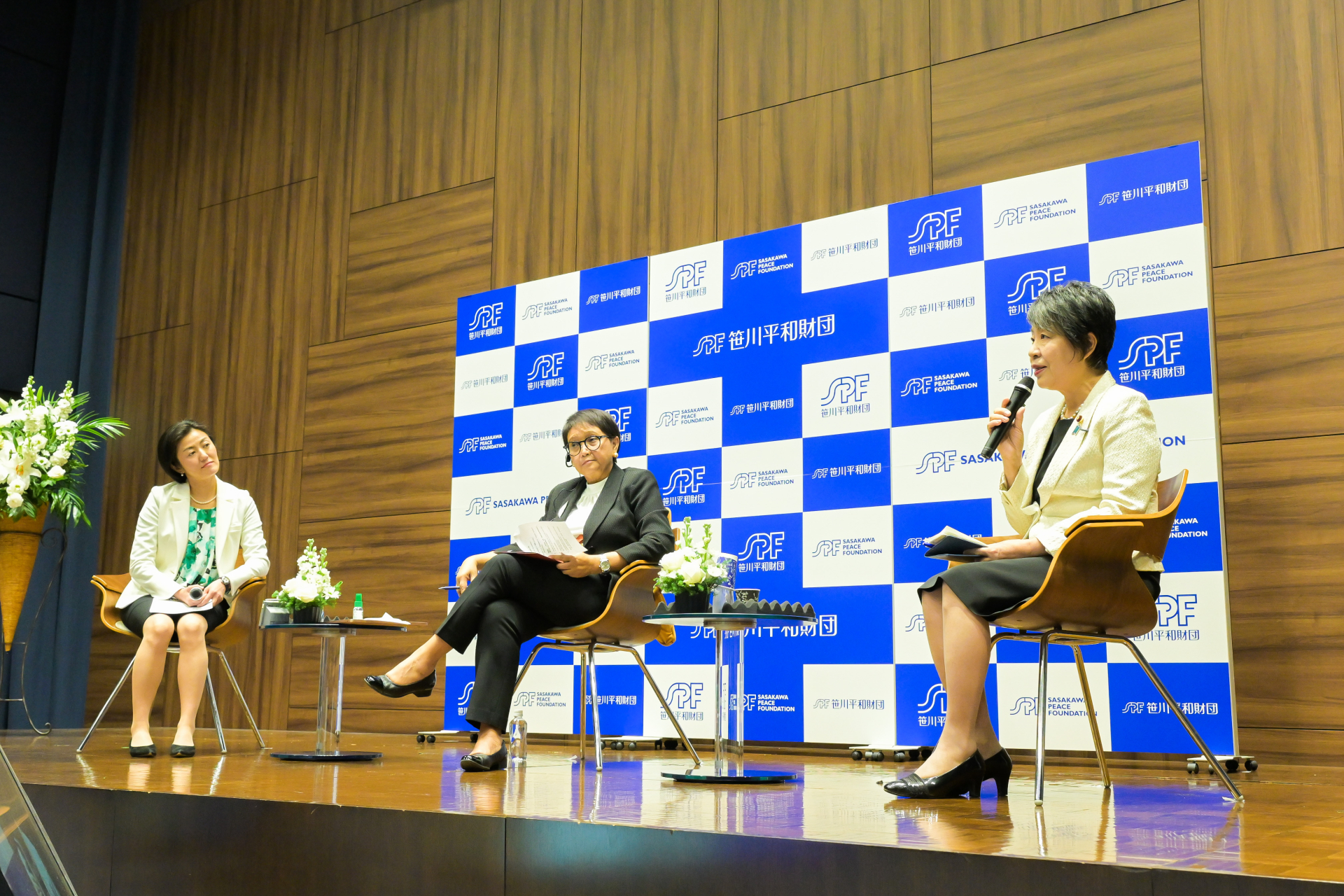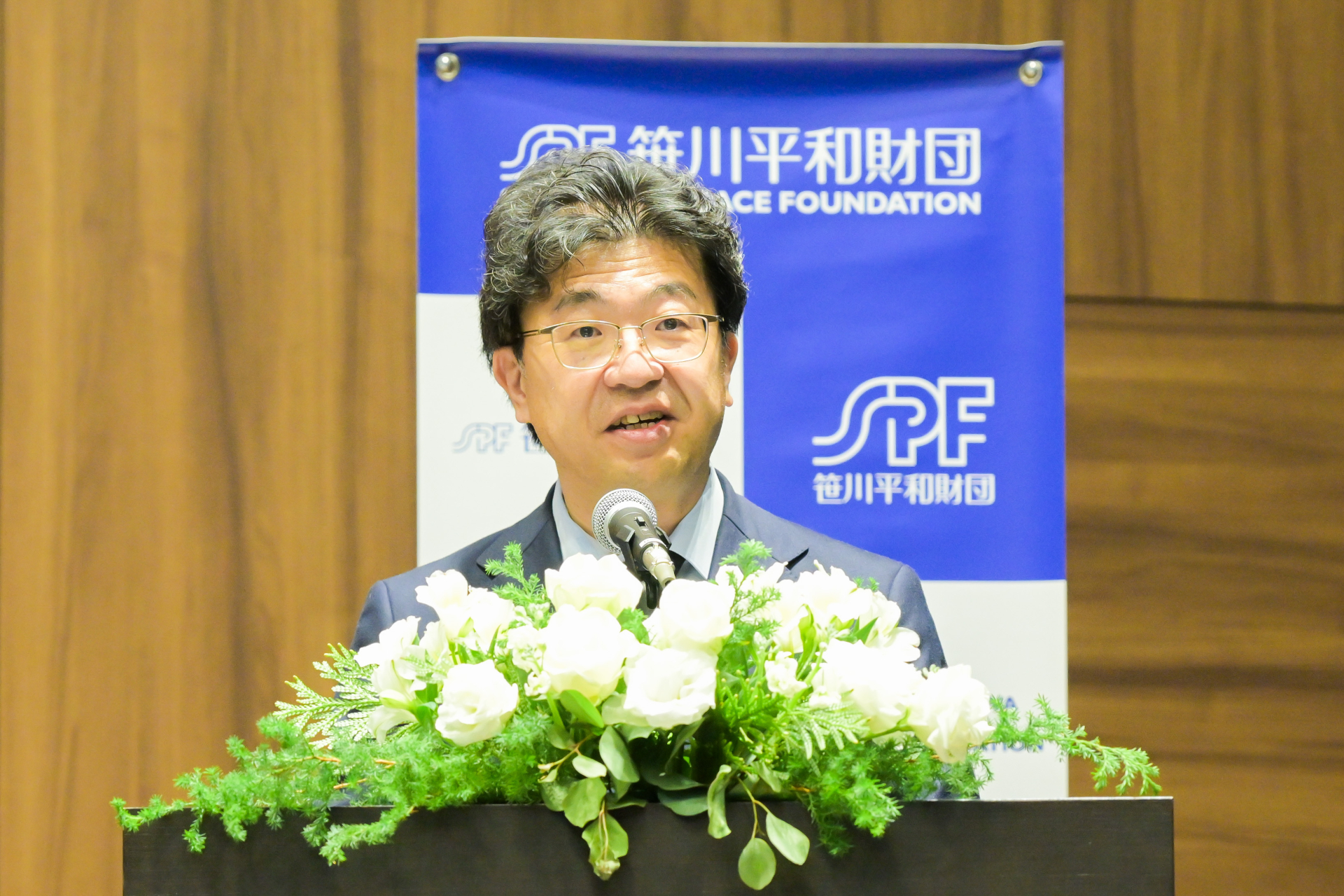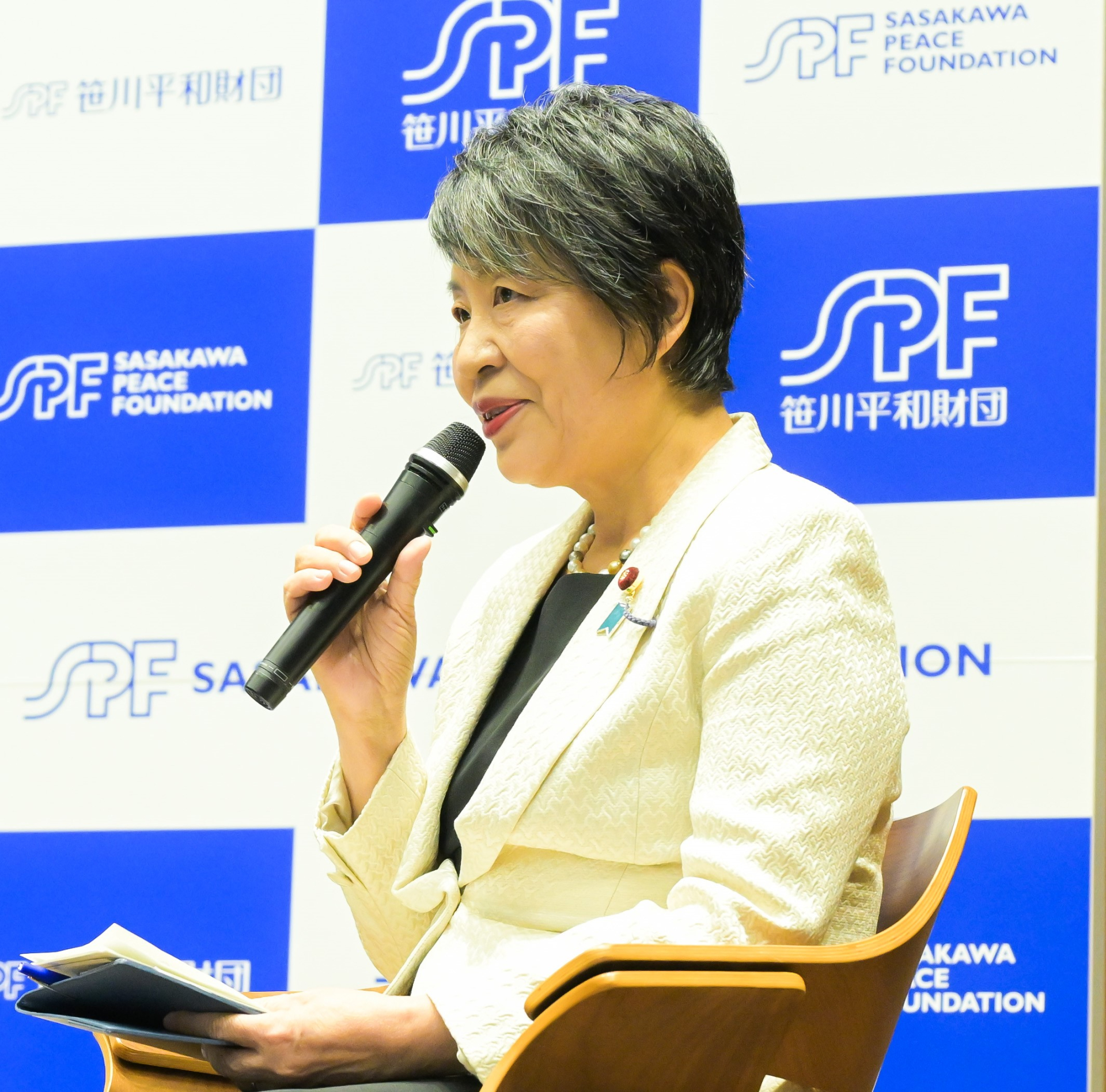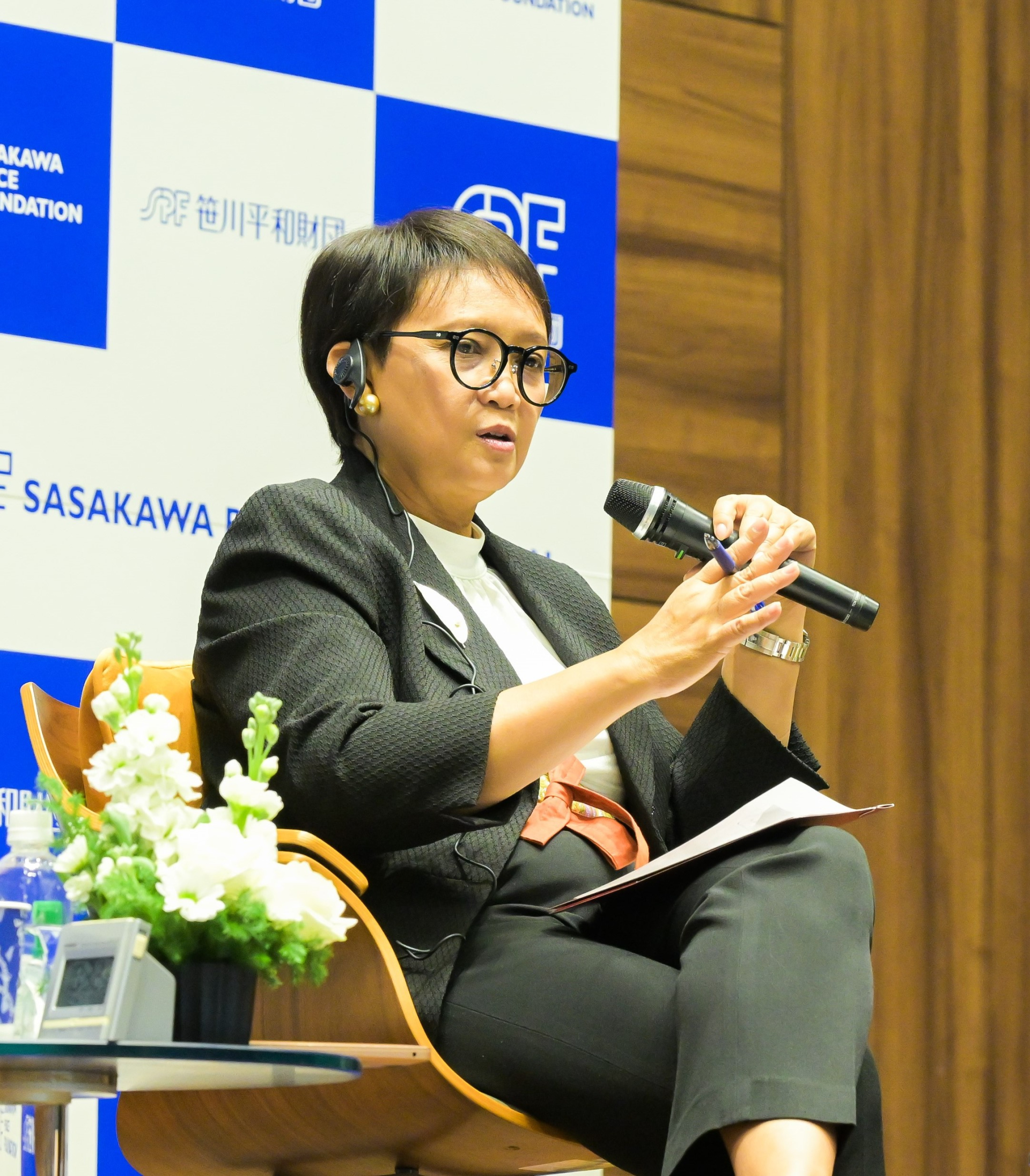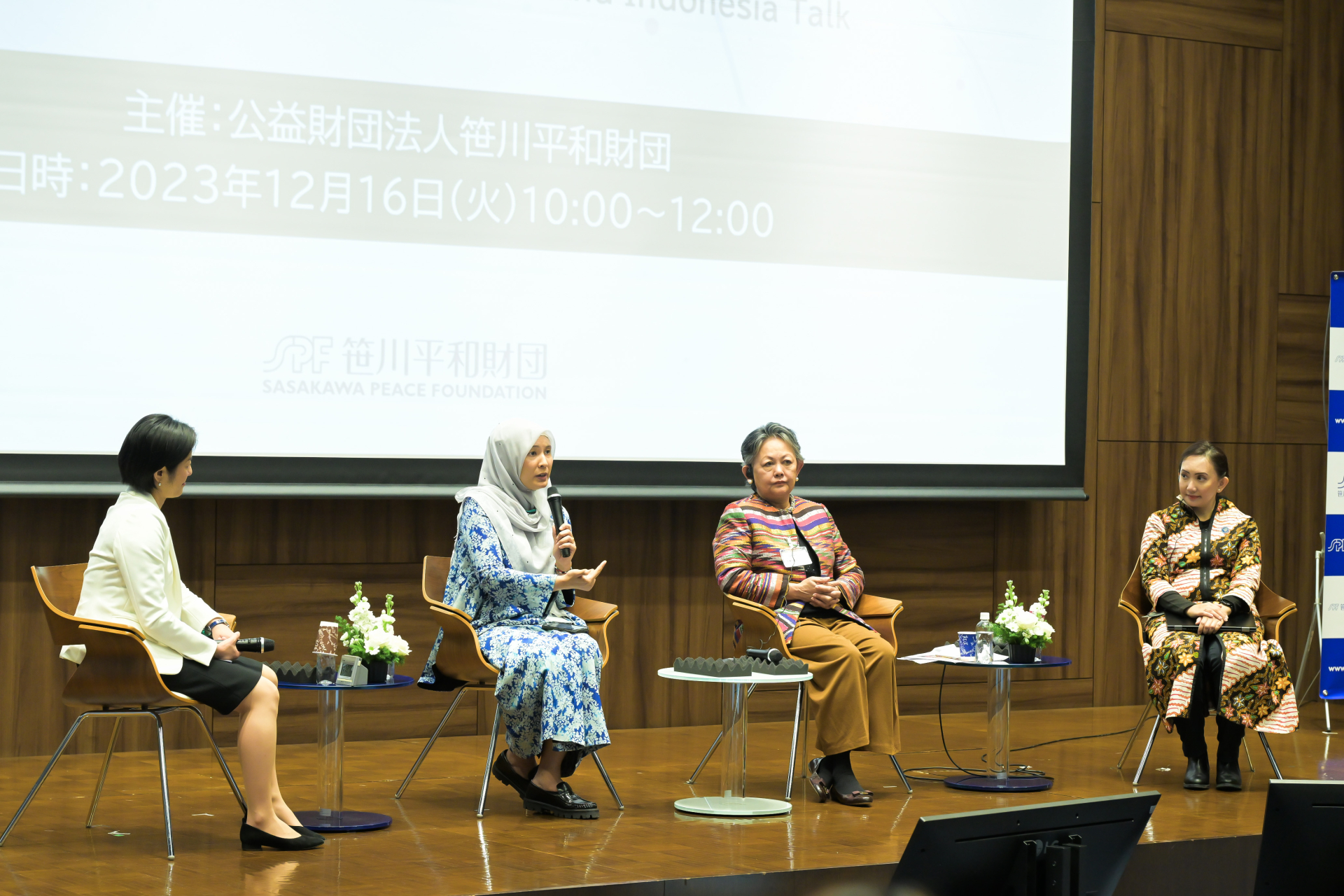Foreign Minister Kamikawa during her opening remarks noted that WPS has become increasingly “mainstreamed in the international community,” brought into sharp focus by the devastating impact of ongoing conflicts around the world. “Looking at what is happening in Ukraine and Gaza, those tragic situations, and the impact on the world economy, food, energy, and others, [we see that] the economy, peace, and stability are inseparable issues.”
Given the interconnected nature of modern conflict and peace efforts, she emphasized the urgency of having more comprehensive discussions that include a range of stakeholders. “We need to have diversity of perspectives to see even greater stability in politics and to have democracy be nurtured in a richer manner,” she said, urging Japan to step up its efforts through international cooperation.
Foreign Minister Retno also touched on the ongoing conflict in Gaza and the continuing suffering of civilians, including women and children. “As a woman, as a mother, as a grandmother, and of course I'm a foreign minister as well, I cannot see this continue. I promise to myself to defend justice and humanity,” she said. “In a world becoming more divided, we need inclusive perspective that can enrich our understanding, enhance our actions, and bridge differences, and for sure, we need women perspectives.”
She went on to describe Indonesia’s leading role in promoting the WPS agenda, including the initiation of a
Southeast Asian Network of Women Peace Negotiators and Mediators, launched in 2019, and other efforts while holding the chairmanship of ASEAN.
